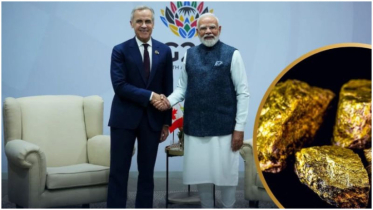Reckless govt spending pushes Pakistan closer to default

On Wednesday, the Pakistan government approved a staggering 66% increase in the discretionary budget of parliamentarians, reaching a record Rs116 billion for the outgoing fiscal year. This decision continues the reckless fiscal policy that is pushing the crisis-hit country closer to default.
The Economic Coordination Committee (ECC) of the cabinet approved Rs27.2bn in supplementary grants, with an additional Rs5bn allocated for discretionary spending by parliamentarians. Most of the remaining grants were also allocated for projects recommended by the parliamentarians.
In addition, the ECC approved a grant of Rs6mn for the payment of a 150% executive allowance to officers of grades 17 to 22 in the Revenue Division.
Federal Board of Revenue (FBR), Chairman, Asim Ahmad signed the summary in his capacity as Secretary of the Revenue Division, seeking the supplementary budget for the executive allowance.
It seems that the government is neglecting the revival of the International Monetary Fund (IMF) programme. It is spending money in complete breach of the understanding reached with the IMF in February this year, which aimed to restrict the primary deficit to just 0.5% of the GDP.
For the outgoing fiscal year, the federal budget deficit is now projected to be around Rs6.4 trillion or 8.1% of the GDP, surpassing the target of Rs4.5 trillion.
The government had initially allocated Rs70bn for parliamentarians’ schemes in the current fiscal year, a sum that has proven insufficient due to competing demands for additional funds by the 13 coalition parties.
With the recent approval, the total allocation for such schemes has been increased to Rs116bn for the outgoing fiscal year, reflecting a two-thirds increase of Rs46bn.
In an apparently incorrect statement, the ECC was informed that the Planning Ministry had surplus funds that could be redirected towards parliamentarians’ schemes.
“The Ministry of Planning and Finance Division have agreed to provide the amount of Rs5 billion through technical supplementary grant from saving available with them from their relevant demands in favour of the Cabinet Division for the development schemes of the deprived areas,” according to the ECC summary.
According to a technical review by the IMF, Pakistan needs Rs12 trillion to finance only ongoing projects, and its current Public Sector Development Program (PSDP) has been deemed “unaffordable” due to limited fiscal space.
This decision comes at a critical time when Pakistan is facing the threat of possible default and urgently needs to negotiate debt restructuring with domestic banks and international creditors like IMF to create some fiscal space. However, instead of taking a prudent approach, the government is allocating funds to schemes where the chances of misuse are high due to the lack of proper scrutiny.
The coalition government had previously decided to allocate Rs500 million to each Member of the National Assembly (MNA), which has now been substantially increased in an attempt to appease the coalition partners.
For the next financial year, the National Economic Council (NEC) has approved Rs90 billion for parliamentarians’ schemes. The approval of such a fiscally irresponsible development budget, allocating 46% of the total budget to new schemes, raises concerns.
.png)




